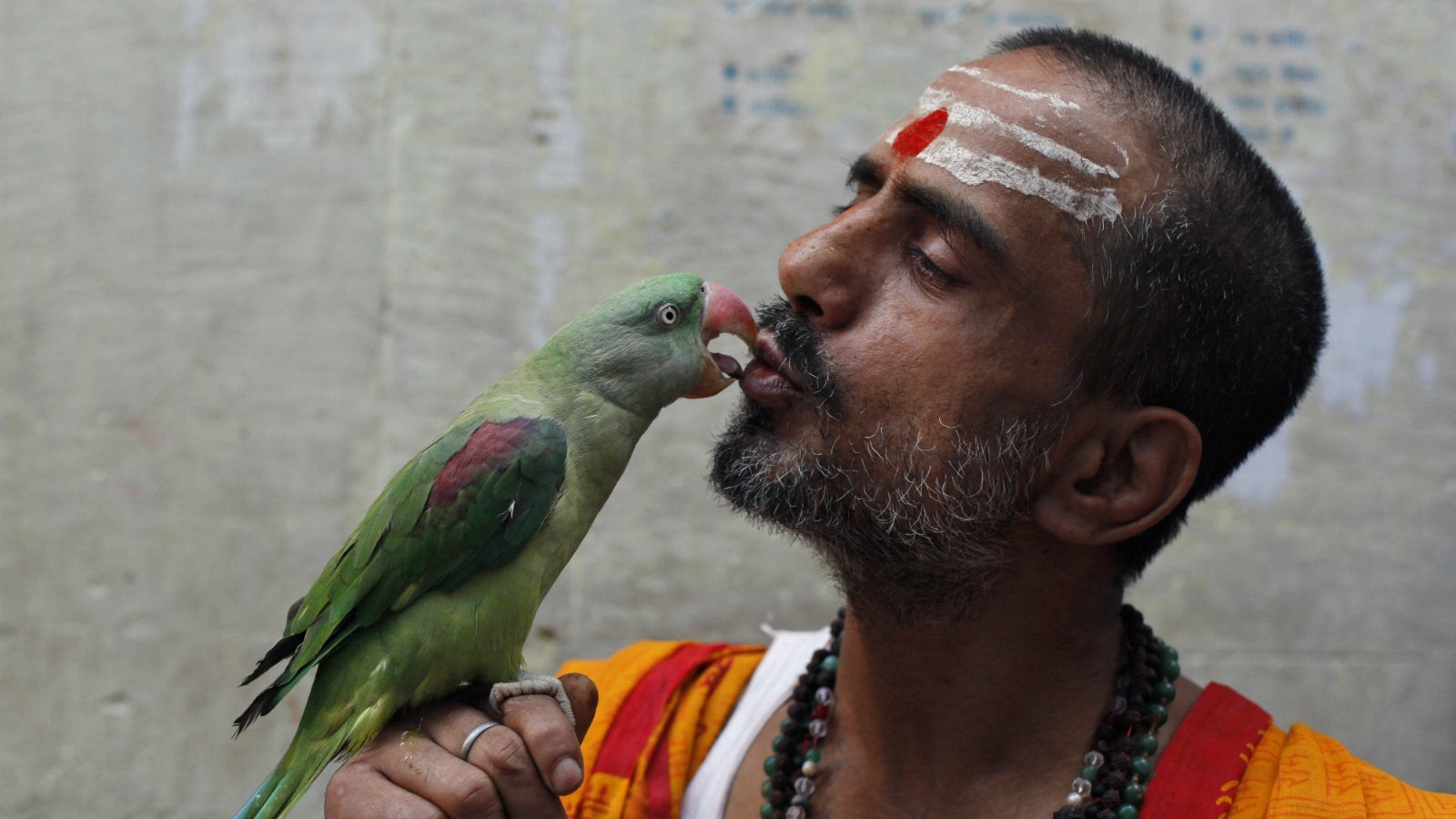The stars are lining up for Indian astrology startups, but investors are still wary
Rohit K Singhania has a masters in accounting and finance from Australia’s Macquarie University. He worked in Australia, London and India with companies like Hewlett-Packard, Kotak Mahindra Bank, and Axis Bank for almost a decade.


Rohit K Singhania has a masters in accounting and finance from Australia’s Macquarie University. He worked in Australia, London and India with companies like Hewlett-Packard, Kotak Mahindra Bank, and Axis Bank for almost a decade.
But perhaps his career trajectory was written in the stars. In April this year, Singhania quit his job and launched Izofy—an online marketplace that connect users with astrologers, numerologists, vaastu consultants, tarot readers, and Vedic healers.
“Even when I was working in Australia and London, I used to practice palmistry as a hobby. I would read palms of the local people there, and they would appreciate my readings,” the 33-year-old founder and CEO of Izofy told Quartz.
Singhania is not alone. India, the world’s third largest startup ecosystem, is witnessing an unexpected rise of astrology-related online ventures.
Last month, for instance, Times Internet—the digital arm of The Times of India Group—launched Astrospeak, a mobile application that offers astrological services. In December 2014, Monkvyasa—that also works as a marketplace for occult sciences—was launched in Kerala. Shubhpuja.com, a portal that helps users organise pujas as well as consult astrologers, was launched in December 2013.
These startups compete with some of the older players like Astrosage (launched in 2000) and GaneshaSpeaks (launched in 2003) in India’s spiritual and religious market that is estimated to be over $30 billion (Rs1.9 lakh crore).
Enough believers
GaneshaSpeaks is India’s number one—and world’s number three—astrology portal in terms of visitors, according to its website. The website gets around 10 million unique users each month, Hemang Arun Pandit, founder and CEO of GaneshaSpeaks, told Quartz. The company employs 700 people, including astrologers.
“We were into operational profits right from the first month of our launch, and we are super profitable now,” Pandit said. Izofy, within six months of its launch, has some 22,000 unique users every month and even generated a small revenue from some 25 transactions in August, Singhania said. Monkvyasa registers around 1,000 unique visitors each day, Dinup Kalleril, co-founder and CEO, told Quartz.
Quartz could not independently verify the numbers given by these firms.
The big surprise isn’t the demand. It’s the clientele.
“Before we started the venture, we used to think that the audience for astrology in India is people above 35 years of age. But we were surprised because a lot of our users include people between 24 and 35 years,” Kalleril said. ”Around 80% of Indians use astrology and related sciences at least once in their life. We see high interest for marriage horoscope matching and love horoscope matching.”
Astrology is “traditionally woven” into Indian culture and so it is “never really going to go out of fashion,” Pandit of GaneshaSpeaks explained. “Families have and will always believed in astrology… and it is something that is involuntarily passed on to the next generations. Plus in our society, an astrologer plays the role of a default psychologist, an aspect that assumes great importance in today’s complex lives.”
The business model for most of these websites is simple. Instead of hiring astrology experts to provide services to those who visit the websites and ask questions, these portals are increasingly working only as marketplaces and connect well-known practitioners with users. Most of these websites charge a percentage of the transaction fee between the user and the astrologer as a commission.
“There are over two million astrologers in India alone, and we believe it is a huge opportunity that we are tapping. In fact, why India alone? There is a huge market for occult sciences in many other countries, including the US,” Singhania said.
Wary investors
Last month, Izofy raised an undisclosed amount in seed funding from non-banking financial company, Prime Capital Markets. Monkvyasa, which is currently backed by Kerala’s Startup Village and TiE Kerala, is in advanced talks with angel investors to raise between Rs1 crore and Rs3 crore, Kalleril said.
GaneshaSpeaks funds its business from internal accruals, and Pandit said the company will “look to raise funds at an appropriate time in the future.”
Although these companies have succeeded in raising small-ticket initial funding, procuring larger venture capital (VC) investments doesn’t seem to be particularly easy. A number of institutional investors that Quartz contacted had mixed views on astrology businesses.
Several VC investors view the segment with skepticism. “We are not positive on the space right now. In general, we look for companies that provide real and lasting consumer value, which is not clear in this case,” Ritesh Banglani, partner at Helion Ventures, told Quartz.
Three other VC investors that Quartz contacted for this story said that they would never invest in a company that operates in astrology because they do not believe in this practice. They did not wish to be identified.
“It is ridiculous that in today’s times people are talking about astrology,” the chairman and managing director of a Bengaluru-headquartered VC firm told Quartz.
Another top VC said he does not plan to invest in any business that he doesn’t believe in. “Regardless of financial attractiveness, I am not going to invest in astrology, homeopathy or other such mumbo-jumbo,” he told Quartz.
But SAIF Partners’ Alok Goel believes that if customers want a service and a business model makes sense, then it’s fair game. “A business is a business,” Goel told Quartz, “and as long as you are providing some value to your customer and not cheating him, it’s perfectly fine.”